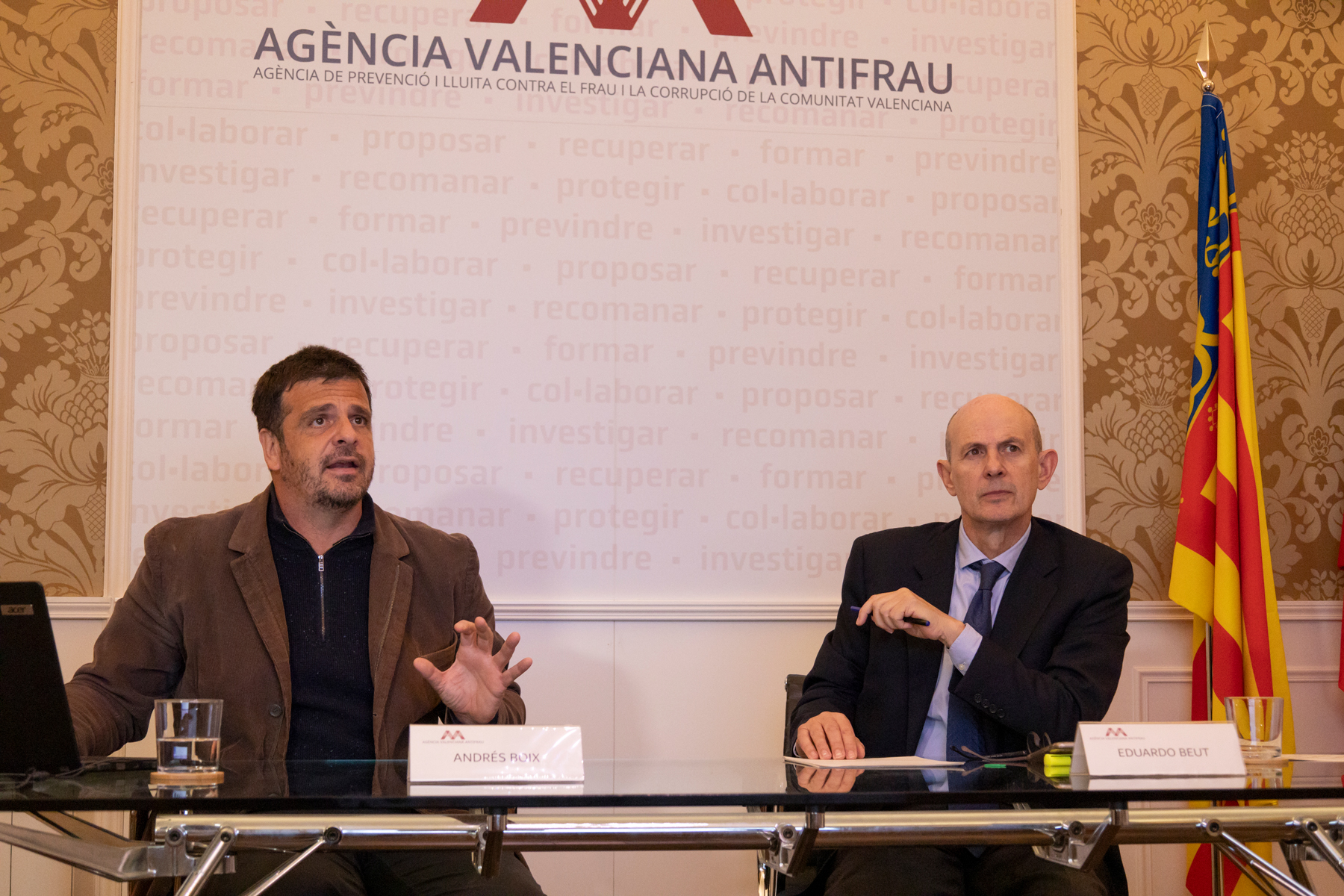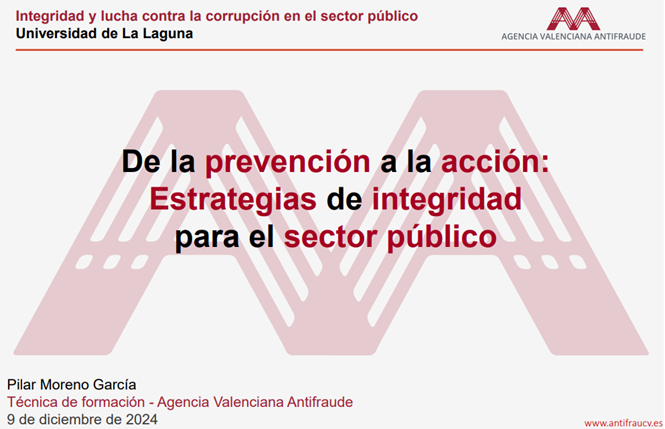On January 16, 2025, the Agency participated in the teaching of the Master’s Degree in Public Procurement and Compliance of the University of Valencia, in its sixth edition. It is a Master’s Degree with a multidisciplinary approach in which, in addition to the Agency, different entities and universities collaborate.
The coordinator of the Area of Training, participation, communication and relationship with other entities of the Agency for the Prevention and Fight against Fraud and Corruption of the Valencian Community, Anselm Bodoque Arribas, gave the presentation “The role developed by anti-fraud agencies in public procurement” during a session of the program of this edition of the Master’s Degree.
The objective of this training activity has been to underline the importance of public integrity and ethics to reduce fraud and corruption, participating in a Master’s Degree of the University of Valencia, where students who are specializing in the different particularities of public procurement and compliance, both from the private and public perspectives, participate. The Agency’s presentation starts with an explanation of how the strategies to fight fraud and corruption are being configured and focuses on the knowledge of the risks in public management and in the public procurement process that may end up constituting a crime in the course of preparing the administrative file. the award or execution of a public contract.
Anselm Bodoque, began by contextualizing the policies of the fight against corruption in the international changes since the 1990s, to continue with the regulatory framework in relation to corruption, both from the international antecedents, and from the Valencian system of public integrity. To focus on the development of the Agency’s functions and actions, highlighting the importance of prevention for good administration.
During the presentation, the complaints received by different control bodies with an impact on public procurement were used to observe the main risks of fraud and corruption that can occur in public procurement, emphasizing situations of conflicts of interest, illustrating their presentation with examples of malpractice.
The last part of the conference focused on prevention as a tool in the fight against fraud and corruption, from the international reference manuals, to the material prepared by the Agency to strengthen the integrity of the Valencian Community, and the different specific materials prepared in relation to public procurement.
The Training Coordinator of the Valencian Anti-Fraud Agency ended his speech by thanking the invitation of the University of Valencia and the co-director of the Master’s Degree, María Ángeles Jareño, and wishing success to the students in their professional future.




